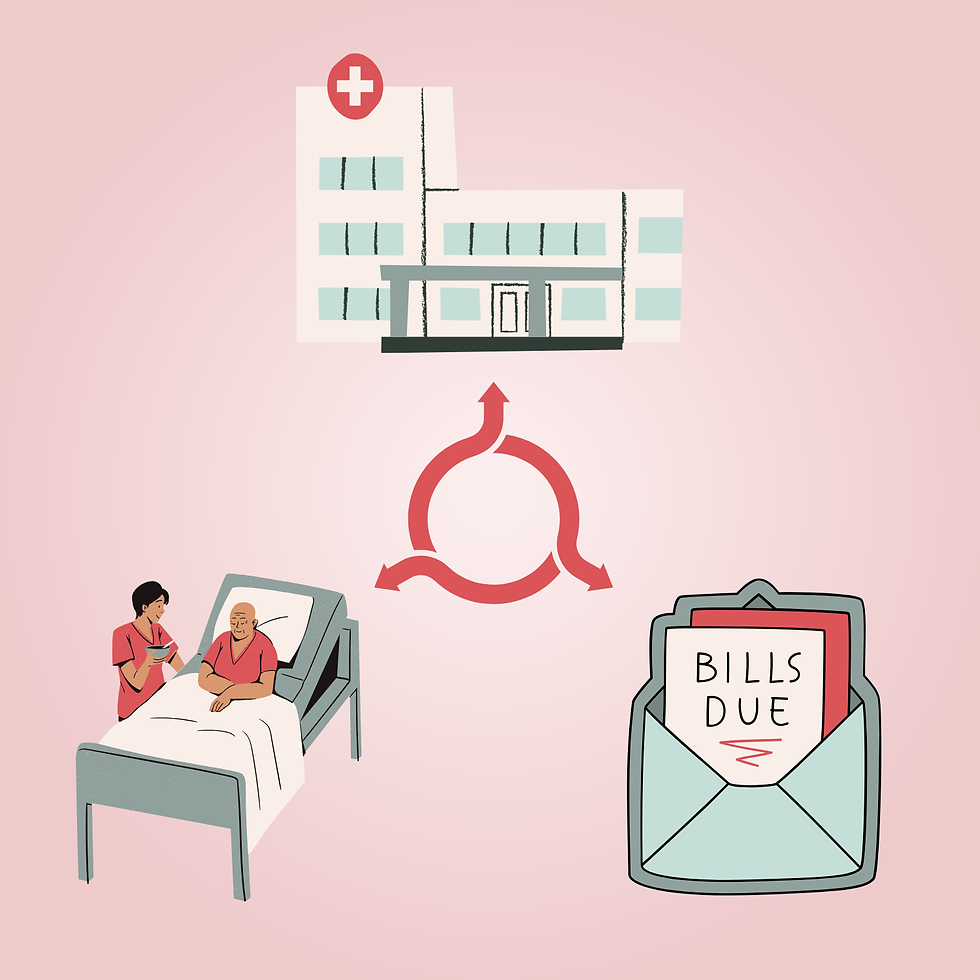COVID and Minority Mental Health
- Riya Mohan
- Oct 10, 2021
- 3 min read
The COVID pandemic has brought many changes to the way we live our lives. One of the biggest advances has been destigmatizing mental health issues in a way that couldn’t be achieved in decades past. However, studies show that high levels of stigma towards mental health care continue to persist in minority communities. Culturally sensitive care, or the ability of systems to provide care to patients with diverse backgrounds, will create a sustainable solution to this disparity and can be achieved by including more diversity within the medical health spaces and by utilizing updated pedagogy at multiple levels of the medical community.
Diversity has been a focus of reform within the medical community for decades. Almost twenty years ago, the Pew Health Professions Commission called for more minority individuals to be included within the Allied Health space, or the community of professionals who assist with diagnostic, technical, therapeutic, and supportive services of medicine. However, these changes must occur systematically across Medicine, Nursing, and Public Health in order to achieve long-term equity and ensure cultural sensitivity. The need for diversity is apparent in recent data from the AAMC’s Projections of Physician Supply and Demand that shows severe imbalances within the medical community. As of 2019, 68% of doctors were White and 23% of doctors were Asian, but only 7.3% and 6.5% were Black and Hispanic, respectively. A diverse group of healthcare providers ensures that innovative and inclusive care is implemented at every level of medical decision-making. Furthermore, in terms of mental health care, greater diversity promotes cultural contact that enables care providers to better understand the social contexts driving prejudice towards mental health issues. Only after a care provider understands these issues can they help address these fears and provide sensitive, individualized care.

To continue decreasing stigma towards mental health in minority communities, the social and cultural issues of healthcare must be included in medical training. This education could take place during medical school or residency as part of the required curriculum, or by making cultural training a requirement for health care providers to renew medical licenses, obtain hospital privileges, or complete yearly training. Though this would require a greater amount of effort on the part of administrators and health institutions to expand currently existing cultural training programs, it is a necessary step that ensures that the health community is kept up to date about health disparities. Cultural sensitivity cannot exist without adequate awareness and education as cognizance establishes greater trust and collaboration between care providers and patients. Trust and collaboration are needed, especially in the realm of mental health care, in order to provide the highest quality of care to the patient and reduce stigma.
Cultural cognizance, through greater diversity within health spaces and updated pedagogy to reflect the social issues prevalent in medicine, is vital to decreasing mental health stigma in minority communities. An effective medical workforce must reflect the diversity of its patients and the breadth of issues within the health community. Mental health is no exception.
References
Mental health: a report of the Surgeon General. [Rockville, Md.: Dept. of Health and Human Services, U.S. Public Health Service ; Pittsburgh, PA: For sale by the Supt. of Docs, 1999] Web.. Retrieved from the Library of Congress, <lccn.loc.gov/2002495357>.
"Critical Challenges: Revitalizing the Health Professions for The.” Critical Challenges: Revitalizing the Health Professions for the Twenty-First Century | Healthforce Center at UCSf, 1 Dec. 1995, healthforce.ucsf.edu/publications/critical-challenges-revitalizing-health-professions-twenty-first-century.
“Critical Challenges: Revitalizing the Health Professions for The.” Critical Challenges: Revitalizing the Health Professions for the Twenty-First Century | Healthforce Center at UCSf, 1 Dec. 1995, healthforce.ucsf.edu/publications/critical-challenges-revitalizing-health-professions-twenty-first-century.
Kripalani, Sunil, et al. “A Prescription for Cultural Competence in Medical Education.” Journal of General Internal Medicine, Blackwell Science Inc, Oct. 2006, www.ncbi.nlm.nih.gov/pmc/articles/PMC1831630/.



Comments